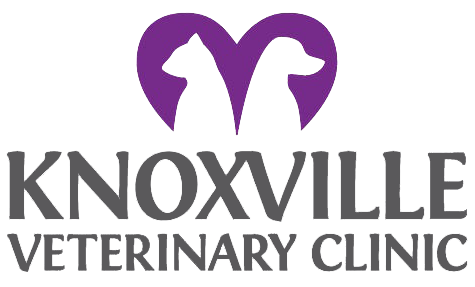Library
-
Phobias related to thunderstorms and fireworks cause dogs to suffer and often increase in intensity over time. Behavior modification combined with medication can be used to reduce a dog's level of fear. Until therapy can be completed, it can be helpful to sit with your dog in a safe room where background music and curtains can be used to help buffer noises and flashing lights.
-
Your older cat requires more care and attention to make sure they have the best quality of life. If they have certain medical conditions, that will factor into what they can do and how often they may need to see your family veterinarian. It's important to spend time with your cat to keep their stress low and monitor for changes.
-
Your older dog requires more care and attention to make sure they have the best quality of life. If they have certain medical conditions, that will factor into what they can do and how often they may need to see your family veterinarian. It's important to spend time with your dog not only for social interaction but to stimulate their mind.
-
Osteoarthritis (OA) is a progressive, degenerative disease that worsens over time. This handout discusses steps you can take to help your cat deal with osteoarthritis (OA) or degenerative joint disease (DJD). In addition to medications that may be prescribed by your veterinarian, other treatment options such as weight loss, exercise, and complementary therapies such as chiropractic and physiotherapy are outlined.
-
Osteoarthritis (OA) is a progressive, degenerative disease that worsens over time. This handout discusses steps you can take to help your dog deal with osteoarthritis (OA) or degenerative joint disease (DJD). In addition to medications that may be prescribed by your veterinarian, other treatment options such as weight loss, exercise, and complementary therapies such as chiropractic and physiotherapy are outlined.
-
An aural hematoma is a collection of blood between the cartilage and skin of the ear flap. It is most likely caused by trauma but can also be due to a bleeding disorder. If an underlying cause is determined such as infection, this needs to be treated as well. Hematomas may eventually resolve on their own, but there is a risk of permanent damage and they are painful, so prompt treatment is recommended.
-
An aural hematoma is a collection of blood between the cartilage and skin of the ear flap. It is most usually caused by trauma but can also be due to a bleeding disorder. Hematomas in dogs can be treated in different ways but should be treated early to minimize pain and disfigurement. If an underlying cause is determined such as otitis externa, this needs to be treated as well. Hematomas may eventually resolve on their own, but there is a risk of cauliflower ear and they are painful, so prompt treatment is recommended.
-
Hemophilia A and B are clotting disorders involving a deficiency of a specific clotting factor (A: Factor VIII, B: Factor IX) needed for appropriate homeostasis. They are caused by a sex-linked recessive genetic mutation. Affected dogs will show inappropriate hemorrhage including bruising, lameness induced by bleeding into joints and body cavity hemorrhage. It can be diagnosed with a slow APTT and demonstrating low levels of the factor involved. Hemophilia A is more common than B and is generally, more severe. Because it is sex-linked recessive, males are more likely to be affected than females but females still act as carriers, so genetic screening is important prior to breeding to prevent this disease.
-
Hepatic encephalopathy is a neurologic condition in cats and dogs that is caused by an underlying liver condition. It can cause lethargy, seizures, problems with balance and coordination, and coma. Common causes, methods to diagnose the condition, and its treatment options are explained in this handout.
-
Hepatic lipidosis, also known as fatty liver syndrome, is unique to cats and is one of the most common liver diseases seen in cats. Usually a cat with hepatic lipidosis has recently gone through a period of anorexia (little or no eating) for 3 to 4 consecutive days. Diagnosis of hepatic lipidosis is made from blood tests that demonstrate poor liver function and/or from a liver biopsy or fine needle aspirate. Hepatic lipidosis is treatable with aggressive nutritional support until a normal appetite returns. Treating the underlying initial cause of the inappetence is also essential for full recovery.


